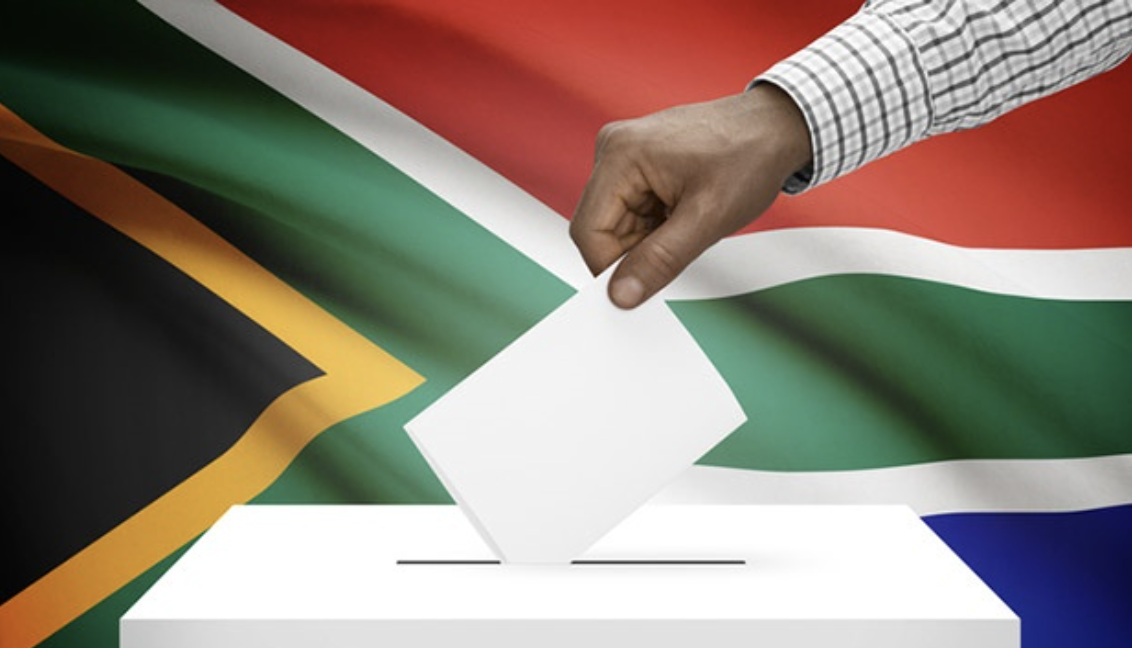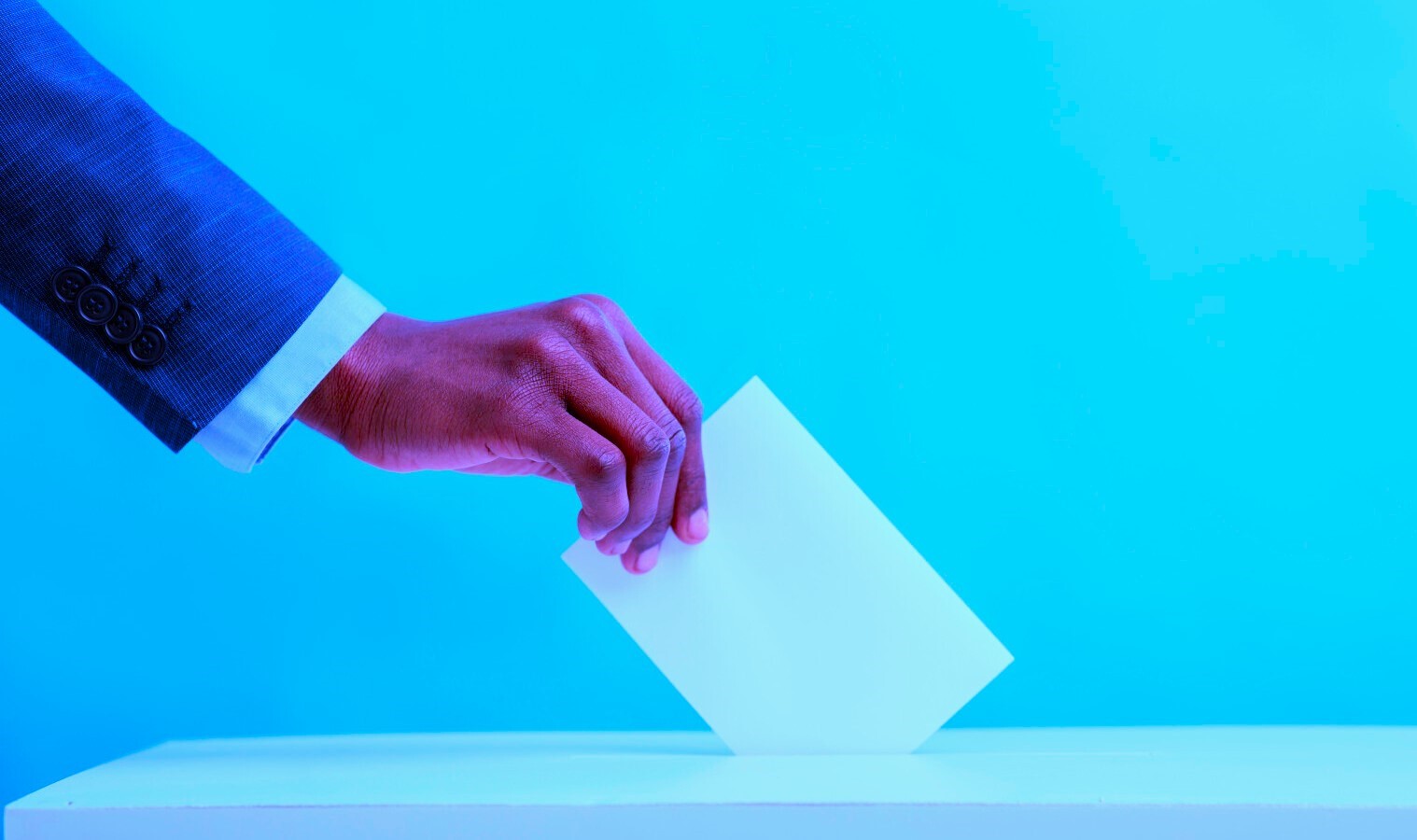News
DA and Zuma’s MK Party Big Winners as ANC and EFF Crash, New Survey Finds
Survey shows ANC foreign policy and weak leadership are turning off voters as DA and Zuma’s MK Party make solid gains with two months to go before the election.

Director, The Brenthurst Foundation

Research Director, The Brenthurst Foundation

A national survey of voters conducted on behalf of The Brenthurst Foundation has found that the ANC’s support has fallen to 39%, making a coalition government highly likely following the general election in May this year.
The biggest gainers have been the DA, which has risen to 27% from 23% in October last year and Jacob Zuma’s MK party which has 13% of the vote, making it the third largest party with the EFF falling from 17% in October last year to just 10%.
With 33% of the vote, the Multi-party Charter coalition (DA, IFP, ActionSA, ACDP and FF+ among others) is just 6% behind the ANC.
Voters are unhappy with governance, with some 80% saying the country is “going in the wrong direction” and with the opposition-governed Western Cape province and City of Cape Town ranked as the best governed areas of the country by some margin.
Voters also appear to have been alienated by the ANC’s foreign policy agenda which has alienated traditional allies in the West as the party indulges Russia, China and Iran.
Some 43% of voters believe that South Africa should align itself with the West and other democratic nations, with 22% saying it should align itself with Africa and only 19% saying it should align itself with BRICS, suggesting that the ANC’s decision to move into the BRICS camp may be costing it votes.
More than 50% of voters said the ANC’s policy on the Ukraine-Russia and Israel-Hamas conflicts would not affect the way they voted. But 24% of voters said they were “less likely” to vote for the ANC as a result of its policy on the Russia-Ukraine conflict, while 23% of voters said they were “less likely” to vote for the ANC over its stance on the Israel-Hamas conflict.
In Gauteng, the DA has risen to 32% (24% in October 2023) and the ANC has fallen to 34% (down from 37% in October 2023). The MPC coalition (DA, IFP, ActionSA, FF+, ACDP among others) has 38% of the vote. A coalition government will run this province.
In KwaZulu-Natal, Former President Jacob Zuma’s MK Party is set to be the largest party with 25% of the vote with the ANC (20%), DA (19%) and the IFP (19%) running neck-and-neck. The aggregated vote for the MPC is 39%. A coalition government will run this province.
In the Western Cape, the DA retains a majority with 53% (down from 56% in October 2023) while the ANC has risen sharply to 35% from 22% in October 2023.
Voters cited the biggest issues facing the country as:
- Unemployment (28%);
- Corruption (27%);
- Load shedding (17%); and
- Weak leadership (12%).
Weak leadership overtook crime (11%) as the fourth most pressing issue.
More than half of voters blame “The ANC government of the last three decades” for South Africa’s problems with 11% saying apartheid was to blame.
Voters are strongly in favour of entrepreneurship, with 39% saying the best way to put more money in people’s pockets was by “making it easier to start small businesses”. A further 25% said “reducing taxes” while 20% said “increasing social grants” and 10% said “decreasing the cost of the civil service”.
Some 42% said social grant payments should be increased. Asked how this should be funded, 51% said by “spending less on civil servants” and 22% said by increasing taxes.
Asked how government could decrease the cost of the civil service, 45% said by reducing the size of the civil service by 10% or more. A further 35% said by “cutting civil service salaries and perks”.
Voters were asked who they rated favourably and who they rated unfavourably. The overall favourability score was obtained by subtracting unfavourability from favourability.
Cyril Ramaphosa (6%) and John Steenhuisen (-6%) had the best overall favourability rating followed by the IFP’s Velenkosi Hlabisa (-12%) with Jacob Zuma with the worst ranking at -31% and Julius Malema close behind with -29%.
The DA enjoyed the highest overall favourability ranking for political parties (4%) with the ANC second (-4%). Least favourable was the FF+ (-31%), with the IFP and the EFF scoring -30%.
With a coalition future more likely than ever, 76% of voters said they would be happy for a coalition to govern South Africa, up from 74% in October 2023.
Asked about which coalitions they favoured, 29% said the Multiparty Charter coalition (DA, IFP, Action SA, FF+, ACDP and others), 25% said an ANC-DA coalition and 24% said an ANC-EFF coalition.
Some 26% of South Africans said they were more likely to vote for an opposition party following the launch of the MPC in August last year.
As electioneering ramps up for the 29 May poll, in the first public survey conducted since the launch of the MK Party, the Brenthurst findings show that South Africans prefer a coalition government located towards the centre of politics rather than the left. Widespread dissatisfaction with ANC governance and policy direction apparently increasingly trumps any legacy loyalty to the liberation movement, where voters are now making decisions based less on nostalgia than the ruling party’s recent record of rule.
*READ THE FULL STATEMENT HERE*
*READ FULL SURVEY RESULTS HERE*


